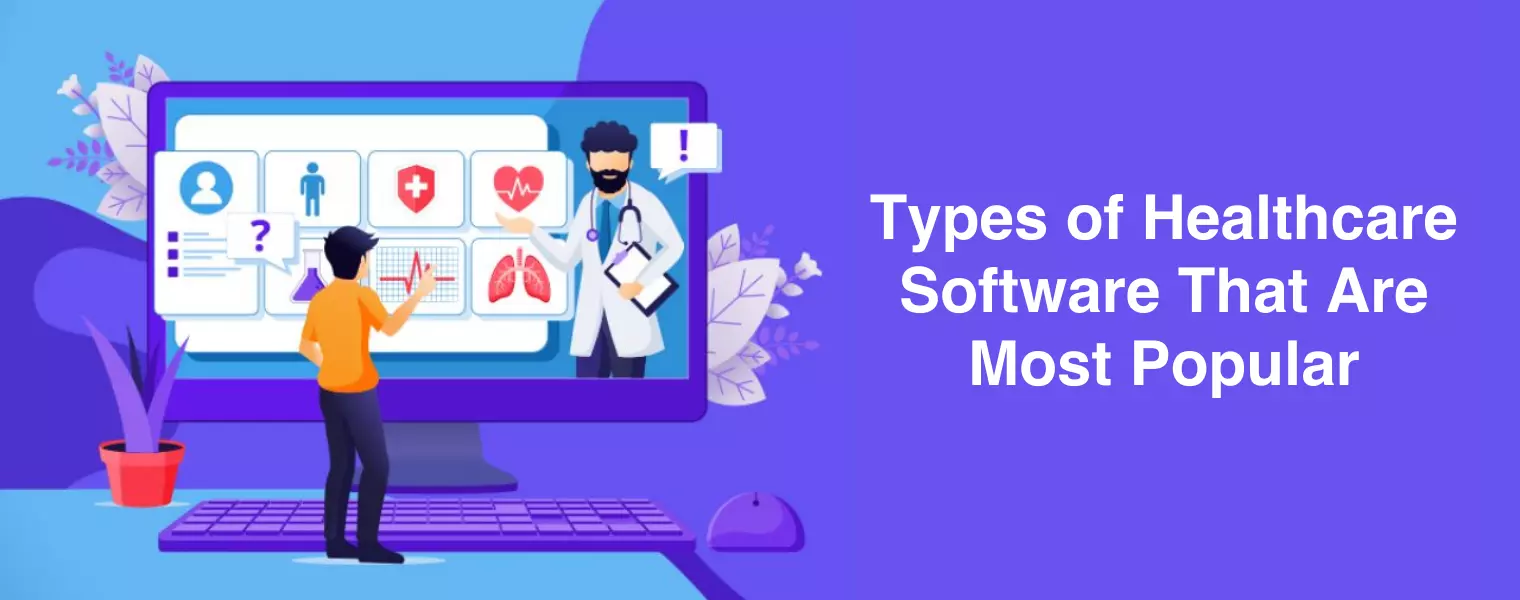
Healthcare may be one of the most difficult industries to digitize due to the large number of stakeholders involved, ranging from hospitals and medical centres to doctors, pharmaceutical and research companies, and patients themselves. Healthcare app logistics have always been one of the most difficult. Some countries are moving more faster than others countries. Let's take a look at what kinds of healthcare software are revolutionizing the industry.
Electronic Health Records (EHR) are probably the most common and important type of healthcare software. Medical and family history, laboratory and other test results, prescribed medication history, and other data are stored in EHR systems.
The most important EHR feature is that authorized providers can create and manage the patient's health information, which can then be shared with other providers across multiple healthcare organizations. This not only automates and streamlines the providers' workflow by eliminating the need for them to collect the same information from the same patient over and over, but it also visibly improves the patient's care. EHRs help to improve patient safety, reduce errors, and support better patient outcomes.
Remote patient monitoring can collect patient data outside of healthcare institutions (clinics or hospitals), allowing for more detailed information about a patient's health or even assisting with remote diagnosis based on that data. If any kind of abnormality is detected, remote patient monitoring software can alert a doctor or a clinic. When the old health management processes were disrupted during the pandemic, remote patient monitoring gained traction.
Heart rate and blood pressure monitors, glucose and blood oxygen meters, and wearable ECG monitors are examples of remote patient monitoring technology. RPM technology and devices, in general, can significantly improve in-home healthcare services for people with chronic diseases, those recovering from surgery, and the elderly.
Hospital management software provides information as well as management capabilities in a hospital to administration, doctors and authorized healthcare professionals, and patients.
Hospital management software not only increases overall productivity and streamline routines, but they also improve the experience of patients during any interaction. HMS (Hospital management software) also enables hospitals to collect and analyse useful data on all aspects of their operations.
Healthcare CRM (customer relationship management) software assists medical practitioners and clinics in maintaining patient relationships. Its purpose is similar to that of other industries' CRMs in that it automates service sales, registration for services, and personalization based on provided data.
Healthcare CRMs provide data on the clinic's daily operations because they can store client information such as medical history, visits, and bills. They can send automated reminders to patients about upcoming check - up or prescription refill appointments. Overall, their goal is to streamline all clinic administrative tasks and make it easier to draw data-driven conclusions. A CRM enables a clinic to better monitor patient satisfaction, identify recurring issues more quickly, and automate ordinary administrative tasks.
E-prescription software is heavily reliant on government regulations, it may vary from country to country. On the other hand, the core value remains constant. Doctors can use e-prescribing software to not only write new prescriptions, but also to track their history, renew them, or cancel them if necessary. In some countries, the software allows you to make direct contact with a pharmacy of your choice.
E-prescription software, in general, improves patient and doctor safety and saves time by allowing doctors to check for any medication conflicts that have already been taken.
Doctors, private clinics, and, most recently, hospitals use appointment scheduling software. It usually consists of two panels, one for the patient and one for the manager (on the side of the clinic). Its main goal is self-explanatory: it simplifies the process of scheduling a doctor's appointment. Patients can easily schedule an appointment, receive appointment reminders, provide pertinent information to the doctor ahead of time, and reschedule or cancel the appointment.
It allows the clinic to have a transparent and easily analysed view of their doctors' schedules from a management standpoint. It is a good way to streamline the clinic's tasks of confirming and rebooking all scheduled appointments for the receptionists.
Billing software is designed to help healthcare organizations manage their financial operations. It allows for all transactions and helps in managing invoices, receipts, and insurance claims. Healthcare billing software is still available as a standalone application, but now many Hospital Management Software include this functionality.
Medical professionals can use clinical trial management software to plan, track, and manage their clinical trials with pinpoint accuracy. Web-based solutions are frequently used to ensure compliance, monitor patient enrolment or recruitment, and manage finances. CTM software is flexible, often allowing for real-time collaboration, and because it is web-based, clinical teams can access it from any location and at any time, without the need for additional software. This is another major benefit of clinical trial management software: it creates a centralized, single repository for all clinical trial data, which improves data collection, quality, and consistency.
The goal of medical equipment management software is to eliminate the need for manual stocktaking and equipment maintenance in hospitals and medical practises. With features like automatic maintenance scheduling and inventory alerts, medical equipment management software helps clinics run smoothly.
The healthcare industry will be impacted more by digital innovation. There are many digital software providers for the healthcare industry across the globe. One among them DoFort Technologies a best software & application provider for the healthcare industry. For more information contact us at info@doforttech.com or comment below.
Welcome to DoFort !